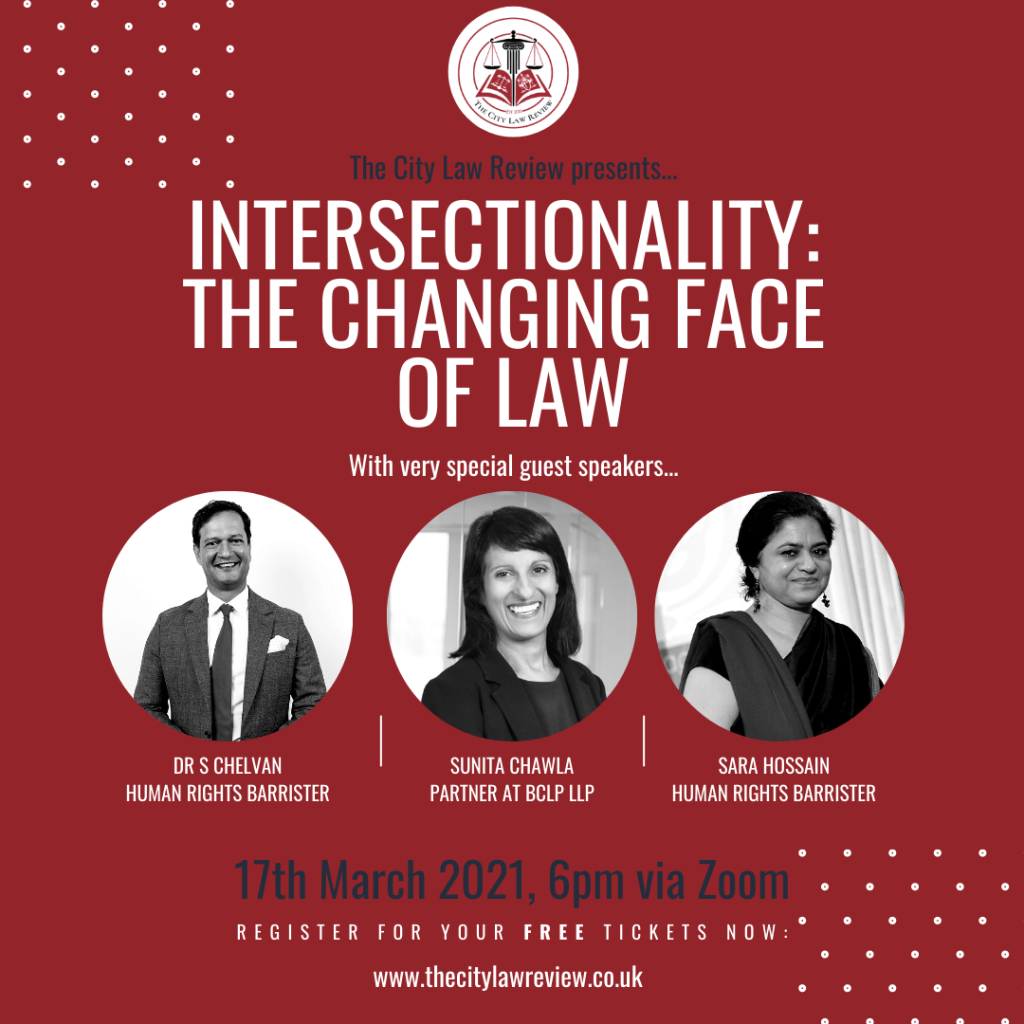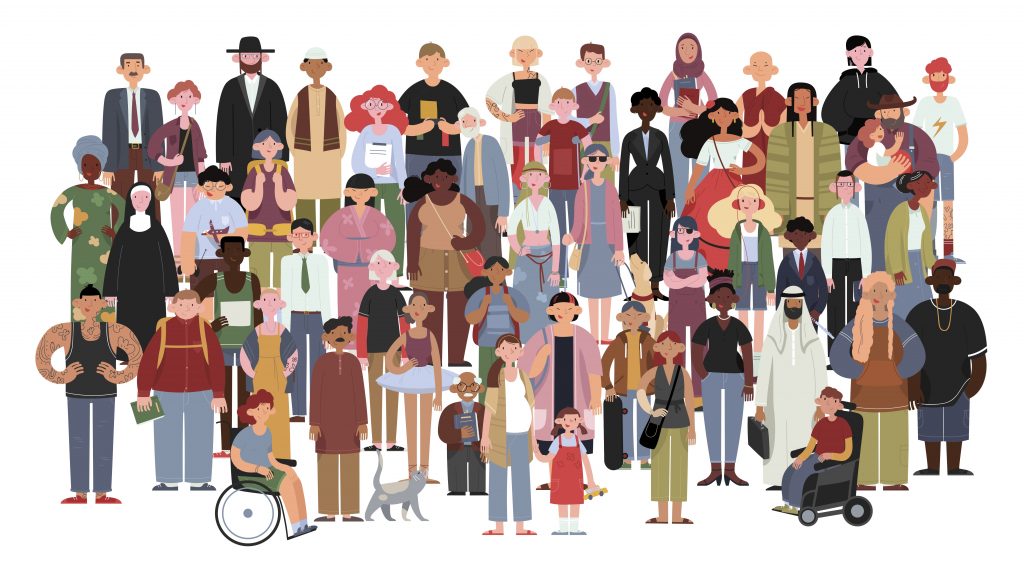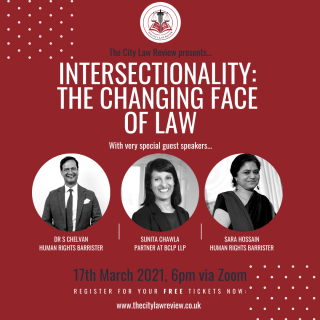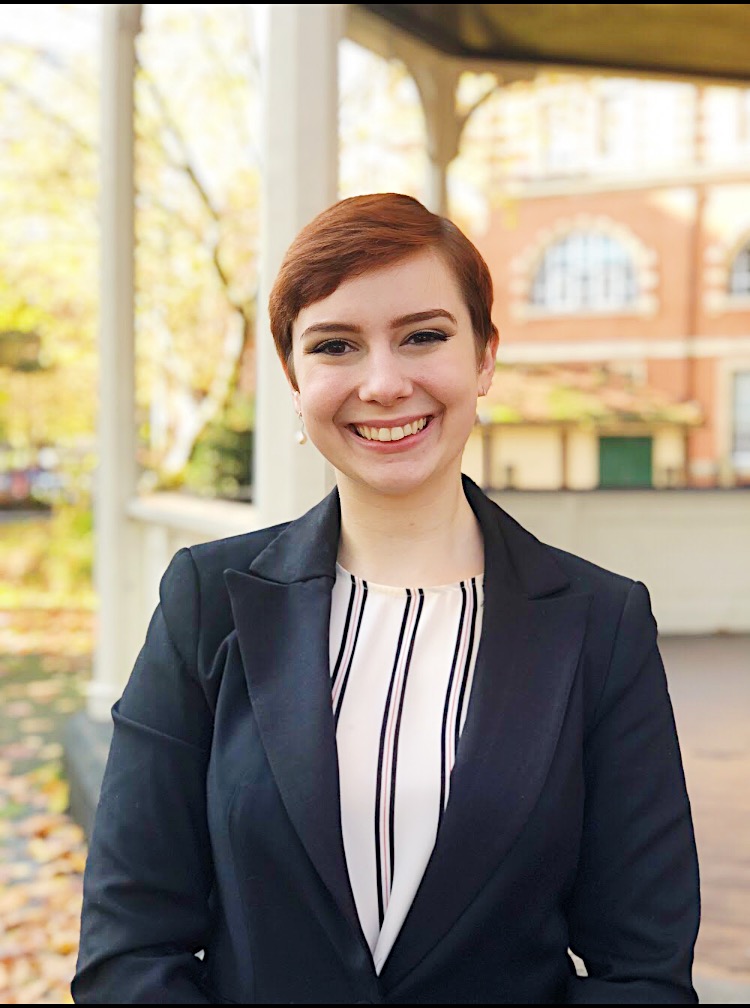To celebrate the launch of its third volume, the City Law Review put together a panel to discuss intersectionality in the law and the workplace. The Review was joined by Dr Chelvan, a legal expert on LGBTQ+ asylum issues, Sara Hossain, the executive director of the Bangladesh Legal Aid and Services Trust, and Sunita Chawla, a partner at BCLP. All were invited to speak about their own experiences with intersectionality throughout their careers.

Before beginning the discussion, Editor-in-Chief, Jonathan Lynch, gave awards to several of the authors that contributed to this year’s volume. Simona Ovcarike and her piece ‘Contract Formation in the Era of E-Commerce’ were commemorative for exquisite writing and Emily Broad’s piece, ’Colour-Blind: How Legal Aid Funding Cuts Disproportionately Affect Black and Minority Ethnic Groups’ was recognized for its contemporary take. BCLP was also kind enough to sponsor one piece relating to a diverse area of the law and that was awarded to Pujita Saini for her piece ‘The Response of the Criminal Justice System to the Issue of Honour Crimes in the United Kingdom’. Those pieces and the rest of the articles are available to read on the City Law Review’s website (click on Volume II) and physical copies will be kept in the law office. Starting with awards was a way to tie in the work of the authors to the discussion from the panel.
When asked about intersectionality, Dr Chelvan took a more personal approach; to him intersectionality is about the ability to self-identify and to have visibility. The ability to self-identity transfers into his legal practice; working with refugees, it is crucial for him to be able to identify and discuss the multi-faceted reasons behind why a person is experiencing discrimination. While intersectionality can seem like a complex or academic phrase, Dr Chelvan sees it just about the ability to exist as a human without the fear of harm. Sunita Chawla agreed with Chelvan, stating that it was important to remember that we are just all humans; we have differences and uniqueness but those should be celebrated and recognised as part of the human experience. Sara Hossian said that while everyone is individual, intersectionality can also focus on a shared moral value.

The general tone was not to think about discrimination but instead about celebration. We should all that the ability to live as ourselves and celebrate those experiences.
In relation to their careers, Dr Chelvan was clear that an intersectional standpoint is essential for human rights work. Ms Chawla said that her work is also being affected by the growing desire for more intersectionality; she mentioned that clients are starting to gravitate towards firms and teams that have a diverse and representative staff. Large law firms are having to change towards a more intersectional approach to stay competitive. For Sara Hossain, the change towards acceptance and equal treatment is more top down or community driven. International conventions that embrace equal protections through intersectionality have made a direct impact on her work in Bangladesh.
As attorneys and advocates, it is important to understand that any person we want to help is multi-faceted and most likely cannot fit into a single category. However, there is an easy answer when it comes to helping someone who might be struggling with a discrimination-based issues: ask them what they need. Sara Hossain spoke about how the most effective way to engage with this type of people is to directly ask and speak with the community about what they need.
The City Law Review will continue to facilitate this type of discussion through its writers and guest speakers that embrace the complexities of advocating in the legal field.
Thanks to Emily Wolf for this comprehensive overview of the panel event. We look forward to Volume III of the Review! Emily is a third year LLB student who has experience in private business law, federal appellate law, and governmental legislative law.
She is most interested in writing public interest and advocacy pieces. Emily has been a member of the Lawbore journalist team since 2019-20, and is also Publishing Editor for the City Law Review.



Great article but I think there must have been an error: Simona’s piece which won the award was from Volume III and not volume II and titled ‘Copyright Laws in the Era of Artificial Intelligence’.